Rock phosphate is a vital ingredient in agriculture. It’s used as an amendment to improve soil productivity, and it’s also used in manufacturing. Rock phosphate is a naturally occurring mineral that can be used in agriculture to improve soil fertility and crop production. It is an important fertilizer because it helps to promote plant growth and helps plants absorb nutrients. It can also help to resist disease and pests. As a result, rock phosphate is often combined with other forms of fertilizer to improve its effectiveness.
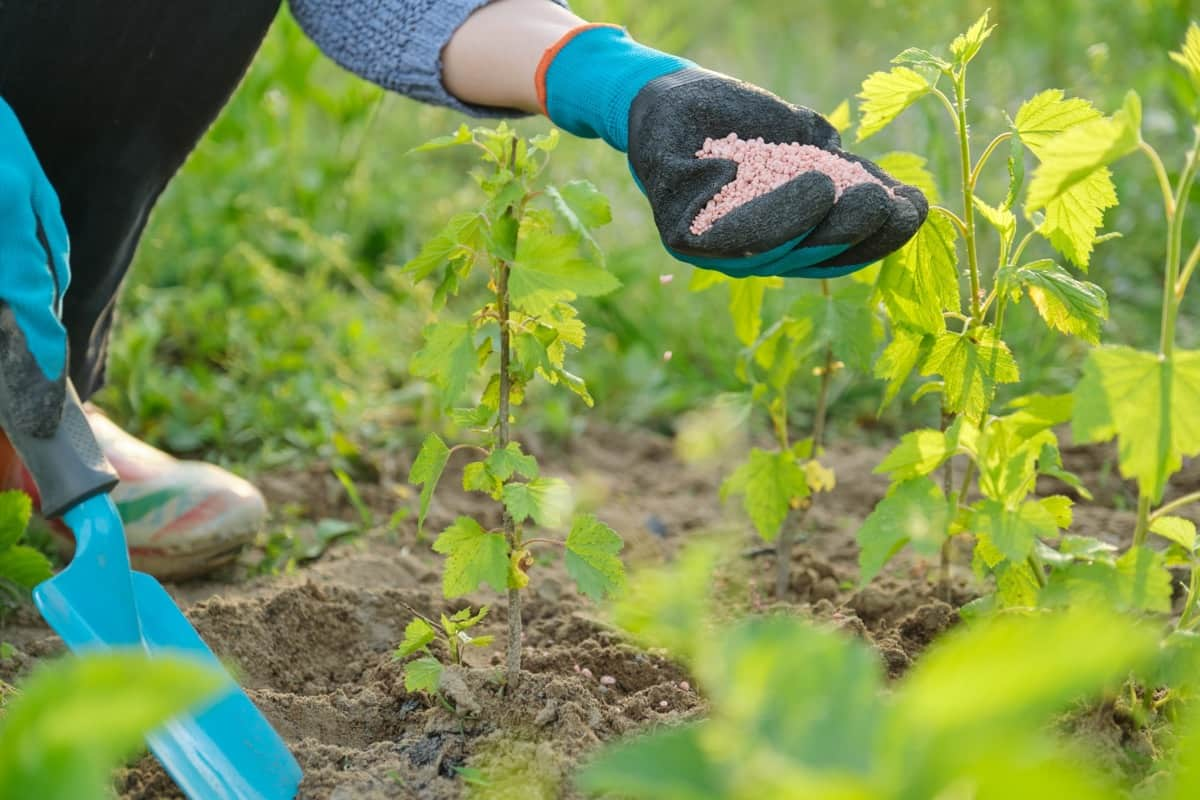
Rock phosphate in agriculture
Why is rock phosphate the best fertilizer?
Rock phosphate is a vital fertilizer used in agriculture. It is used to make phosphates, a key ingredient in fertilizers, and helps crops grow. Rock phosphate comes from deposits of phosphatic rock and is a natural fertilizer. It can be used as an amendment to soil, water, or spray-on product.
Phosphates are essential for plant growth and nutrition. They are also crucial for keeping soils fertile, preventing erosion, and controlling plant pests. Rock phosphate is not burned off during combustion like other fertilizers, so it does not emit harmful pollutants into the air.
How rock phosphate helps plants?
Rock phosphate is a type of phosphorus found in the Earth’s sedimentary rocks. Rock phosphate is often mined and used as an agricultural fertilizer. Rock phosphate is a source of phosphorus that can help plants grow and produce food. The mineral helps plants form strong cell walls, which helps them resist damage from pests and diseases. It also helps the plants absorb nutrients from the soil.
Rock phosphate is most commonly used as an agricultural fertilizer. It can be applied to fields as a powder, liquid, or slurry. Depending on the application, rock phosphate can be mixed with other ingredients, such as water and lime, to form a slurry or liquid fertilizer solution. Rock phosphate has been used for over 100 years as an agricultural fertilizer. Today, it is one of the most popular types of phosphorus available in agriculture.
Is rock phosphate effective?
Rock phosphate is an essential ingredient in agricultural production and has been used for centuries to help increase crop yields. Rock phosphate is a naturally occurring mineral that can be used in agriculture to amend the soil. It is important to note that rock phosphate does not contain any metals, so it can be used on organic farms. Additionally, rock phosphate helps improve soil texture and aeration and resist erosion. Overall, rock phosphate is an effective amendment for many agricultural purposes.
In case you missed it: How to Make Homemade Fertilizers: Recipes for Banana Peels, Scraps, Coffee Grounds, Epsom Salt, Eggshells, and Grass Clippings
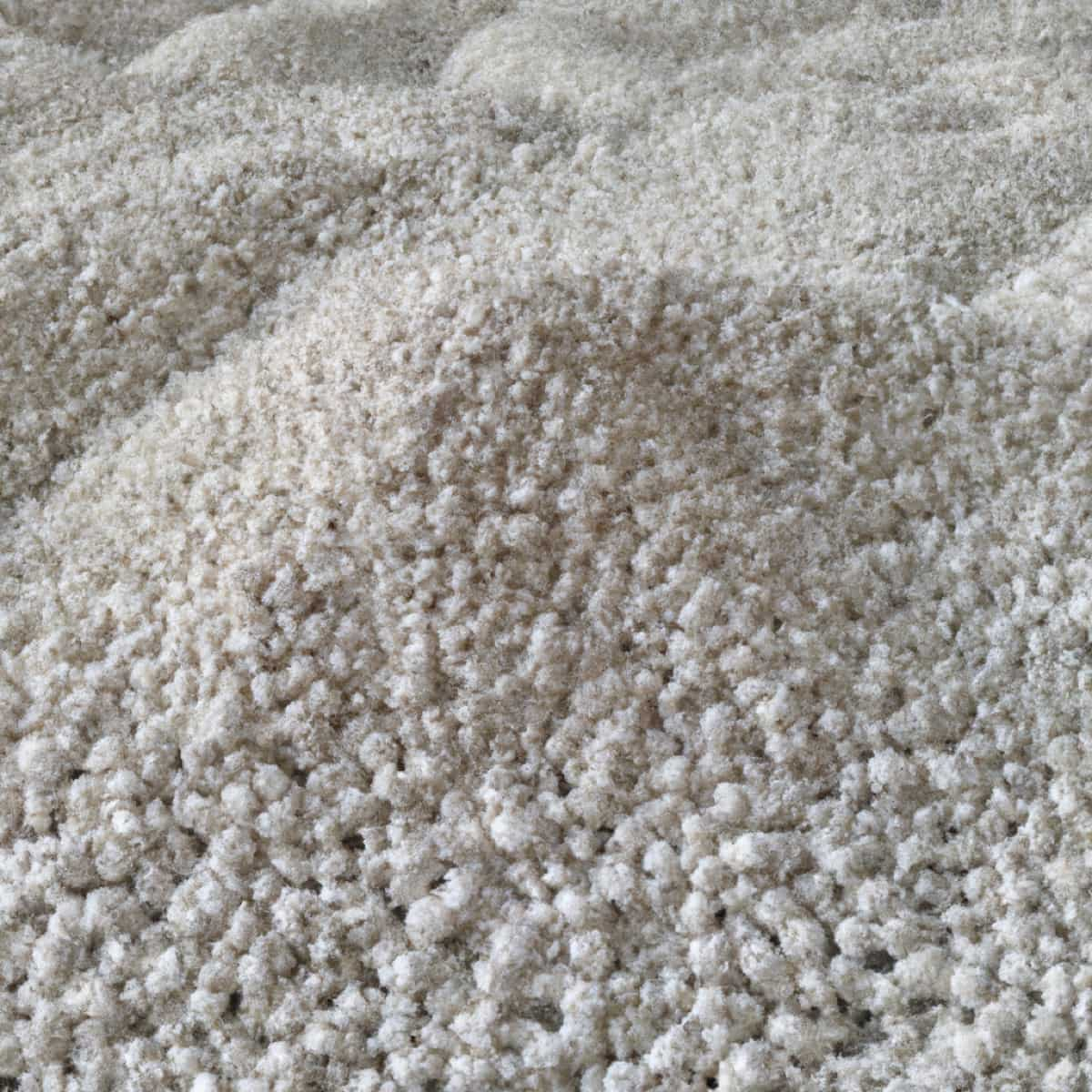
Rock phosphate can improve soil fertility, crop production, and water retention capacity. It can help increase plant processes’ efficiency and reduce the need for other forms of fertilizer. Rock phosphate helps improve plants’ growth by supplying them with essential nutrients and minerals. It also helps reduce the need for irrigation, saving water resources. Rock phosphate is an essential mineral for agriculture, and it’s important to use it responsibly. You can help protect the environment by choosing environmentally friendly rock phosphate products.
Can rock phosphate be used in organic agriculture?
It is a sedimentary rock that contains phosphates. This natural resource can be used in organic agriculture to help increase the phosphorus content of soils and crops. Rock phosphate can also help improve soil fertility and reduce fertilizer requirements. Combined with other fertilizers, rock phosphate can help farmers produce high-quality crops without polluting the environment.
Rock phosphate is a mineral that can be used in organic farming. It helps break up heavy soils and increases fertility. Rock phosphate also provides essential crop nutrients like tomatoes, peppers, and strawberries. In addition, it can be used with other fertilizers to help plants grow quickly and healthily.
Does rock phosphate change soil pH?
Direct application of rock phosphate has been demonstrated to be effective for providing plant-available phosphorus in acidic soils, but rock phosphate effectiveness is known to decline as soil pH increases because some acidity is required to convert the phosphate within rock phosphate to a water-soluble plant available.
Which plants need rock phosphate?
Rock phosphate can fertilize crops in gardens, orchards, and livestock farms. It is often combined with other forms of fertilizer, such as nitrogen and potassium, to provide a broad-based crop fertilizer program. Rock phosphate can also be used as an amendment to the soil to improve its physical properties, including water retention and drainage.
This can help reduce the need for irrigation or drainage systems and promote plants’ growth in moist environments. All plants benefit from applying rock phosphate, as the nutrient is essential for various plant functions. However, perennial flowering plants benefit the most from using phosphate rock as it encourages more and healthier blooms.
For example, when supplemented with rock phosphate, rose plants develop strong root systems, exhibit healthier overall growth, and produce more flowers. Rock phosphate is also highly beneficial for vegetable gardens. This ensures healthy crop production, higher yield, tastier produce, and fewer pests. Also, powdered rock phosphate is an excellent fertilizer for rubber, tea, apple, coffee, and citrus trees.
How to apply rock phosphate fertilizer?
Phosphorite works best in early spring. Although the exact amount can vary according to soil type and nutrient composition, on average, 10 pounds of rock dust is used per 100 square feet. For soils severely deficient in phosphoric acid, the amount is increased to 50 pounds of fertilizer per 100 square feet. If using soft rock phosphate, add it to the potting soil or planting hole before planting. Use 2 to 10 pounds of organic fertilizer for a planting hole, depending on your needs.
In case you missed it: 10 Organic Fertilizers for Your Vegetable Garden: When and How to Apply.
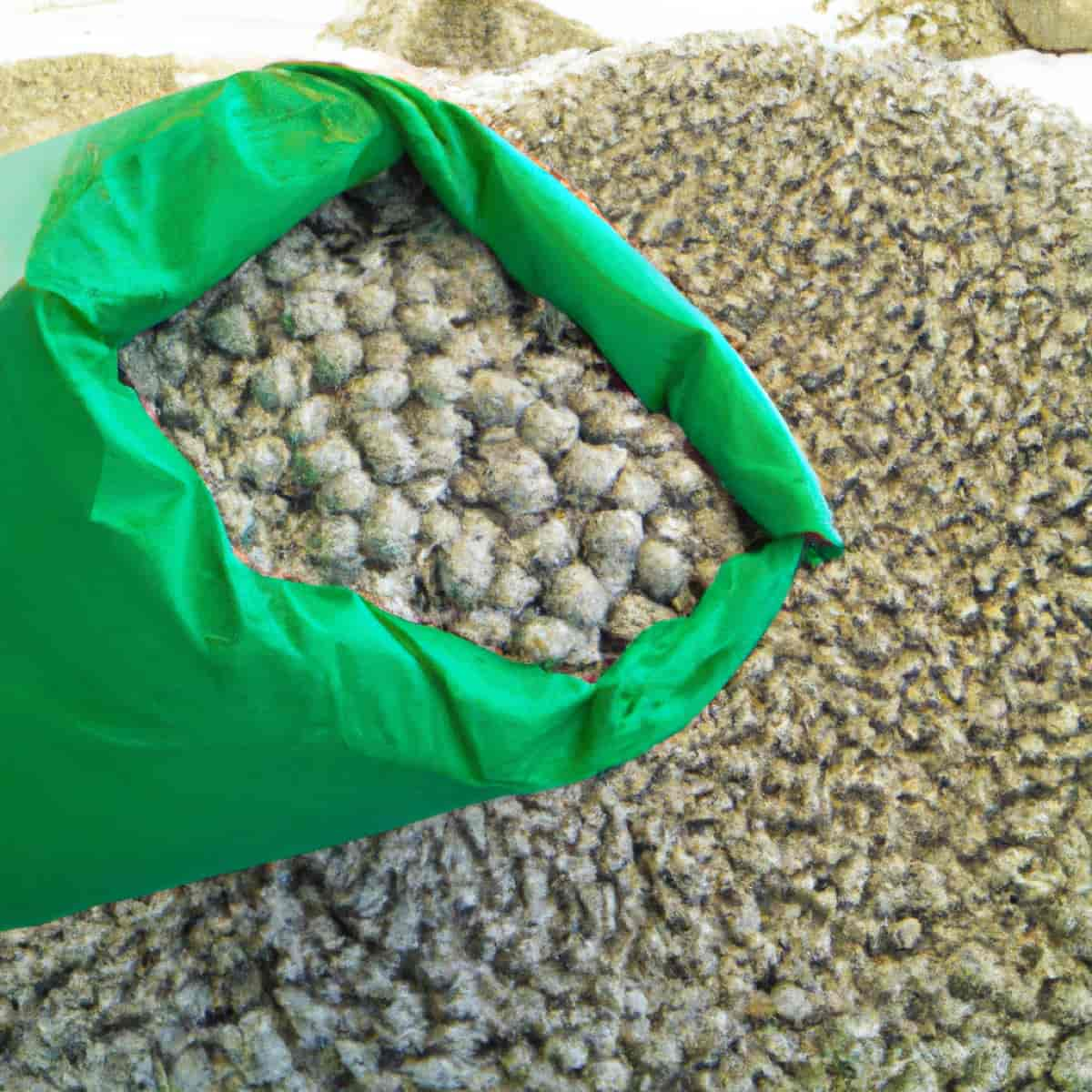
To replenish soil nutrients and augment plants’ growth and health in your already well-established garden, scatter the rock phosphate on the soil surface. Now pour gently into the soil so it gets incorporated into it and becomes available to roots. In general, rock phosphate works best in acidic soils. Since phosphorus is soluble in acidic soils, it becomes more accessible for plants, easily and more readily absorbed by roots. For non-acidic soils, mix it in compost first. The organic matter is acidic; it will make up for the soil pH difference.
How to use rock phosphate for potted plants?
Rock phosphate is a mineral used in agriculture as a soil amendment. Rock phosphate helps to improve the growth of plants and controls weed growth. As a result, it can increase the production of crops such as tomatoes, potatoes, and wheat. To treat your plants with rock phosphate, mix it with water in a spray bottle or watering can. Then mist the plant with the solution every day until it is well-watered. The dosage will depend on the size of the plant and how much fertilizer it needs. For smaller plants, use less; for larger plants, use more.
Application methods of rock phosphate
Application methods vary according to the application requirements. Rock phosphate is also available in various grades, depending on the purity and particle size. Granular rock phosphate is more commonly used for agricultural purposes because it has a high surface area and can be easily applied to the soil. It can also be mixed with other fertilizers to increase their effectiveness.
Powdered rock phosphate is usually used as a component of feed additives or as a soil amendment for crops that need high phosphorus levels but do not tolerate granular formulations well. Rock phosphate is a popular fertilizer used in gardens and agriculture. It is most commonly applied as a dry fertilizer but can also be used in liquid form. There are two main application methods of rock phosphate: broadcasting and drenching.
Broadcasting is the most common way to apply rock phosphate to gardens. This method involves spreading the product over a large area using a tractor or hand tool. Drenching is another standard application method involving spraying the product onto plants directly from a sprayer.
Precautions when using rock phosphate
- Rock phosphate is a type of fertilizer that can be used in gardens.
- Before using rock phosphate, be sure to read the precautions below.
- Rock phosphate is a type of fertilizer that can be used in gardens. Before using rock phosphate, be sure to read the precautions below.
- Keep out of reach of children.
- Use with caution in areas with high water tables.
- Use in established gardens only.
- Be prepared for possible phosphorous runoff from your garden.
In case you missed it: Tips When Switching from Solid Fertilizers to Liquid Fertilizers.
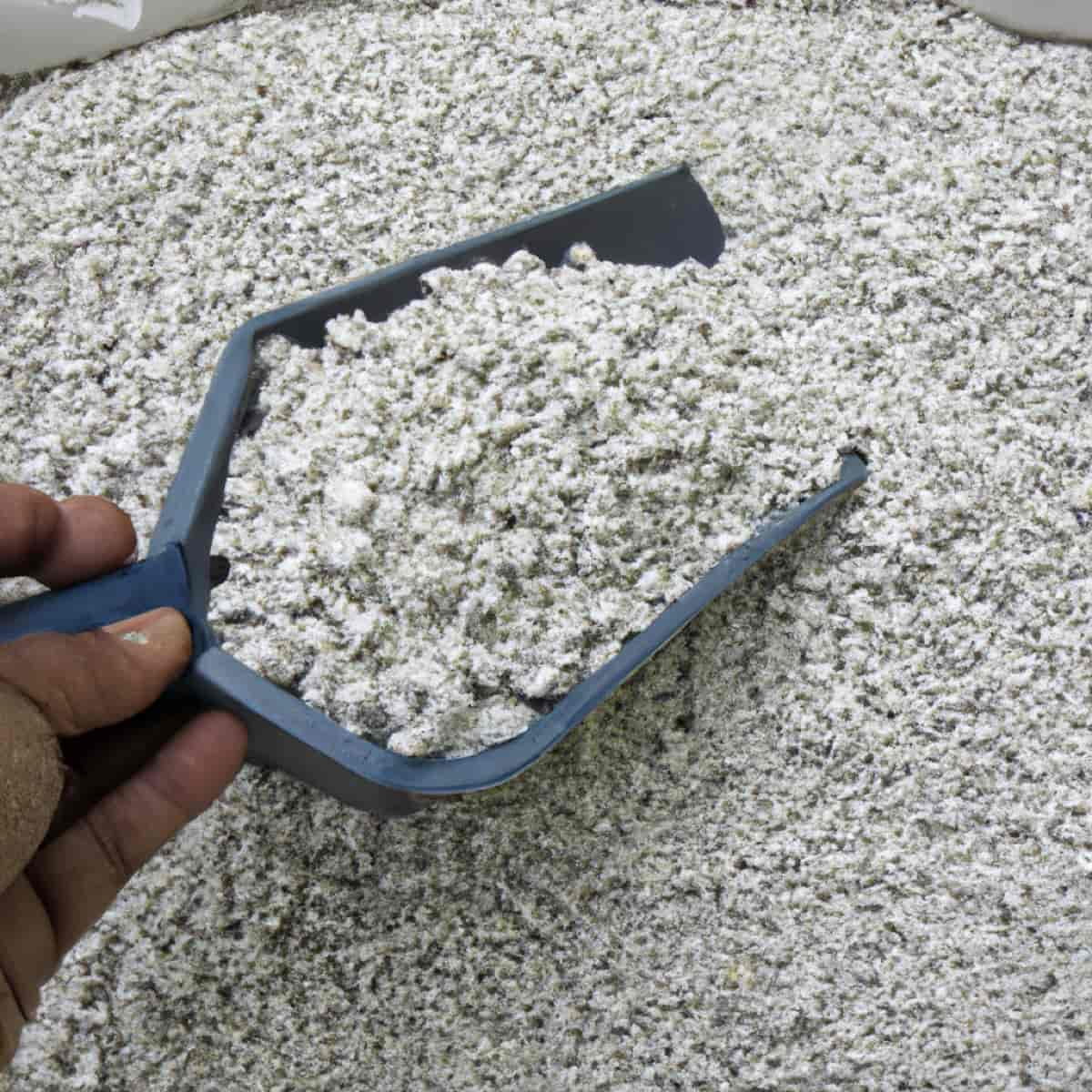
When using rock phosphate as a garden fertilizer, always read and follow the label instructions before use. Some guidelines to keep in mind when using this product include:
- Never use more than recommended on the product label – overapplication of this fertilizer can harm plants and soil fertility; always read and follow directions before applying.
- Rock Phosphate should only be applied during early spring (before active root growth begins), late fall (after leaves have dropped but before frost), or early winter (frost danger has passed); mix 1 cup/ 350 lbs. of nitrogen with every gallon/3.7 liters of water when adding Rock Phosphate;
- Avoid working around the application site until wetting down is completed; work into the moist soil surface, working deeply if needed.
Tips for using rock phosphate
- Make sure that the rock phosphate you are using is 100% organic. Some synthetic versions of this product on the market will not provide the same benefits as natural rock phosphate.
- Read the manufacturer’s instructions carefully before using rock phosphate in your garden. Many applications call for different rates depending on the soil used and the plants grown.
- Finally, keep an eye on your plants while they receive rock phosphate fertilization. Overuse of this nutrient can lead to foliage yellowing or stunting, so be sure to use it conservatively if you decide to add it to your garden arsenal.
Ways to use rock phosphate in agriculture
Rock phosphate fertilizer can be applied through a tractor-mounted spreader, hand-held spreader, or aerial application methods. When using rock phosphate fertilizer in your garden, it is essential to know the dosage rate required for each plant variety and stage of growth. The manufacturer’s instructions should always be followed when applying this fertilizer.
In case you missed it: Top 18 Best Seaweed Fertilizers in India: Benefits and Prices
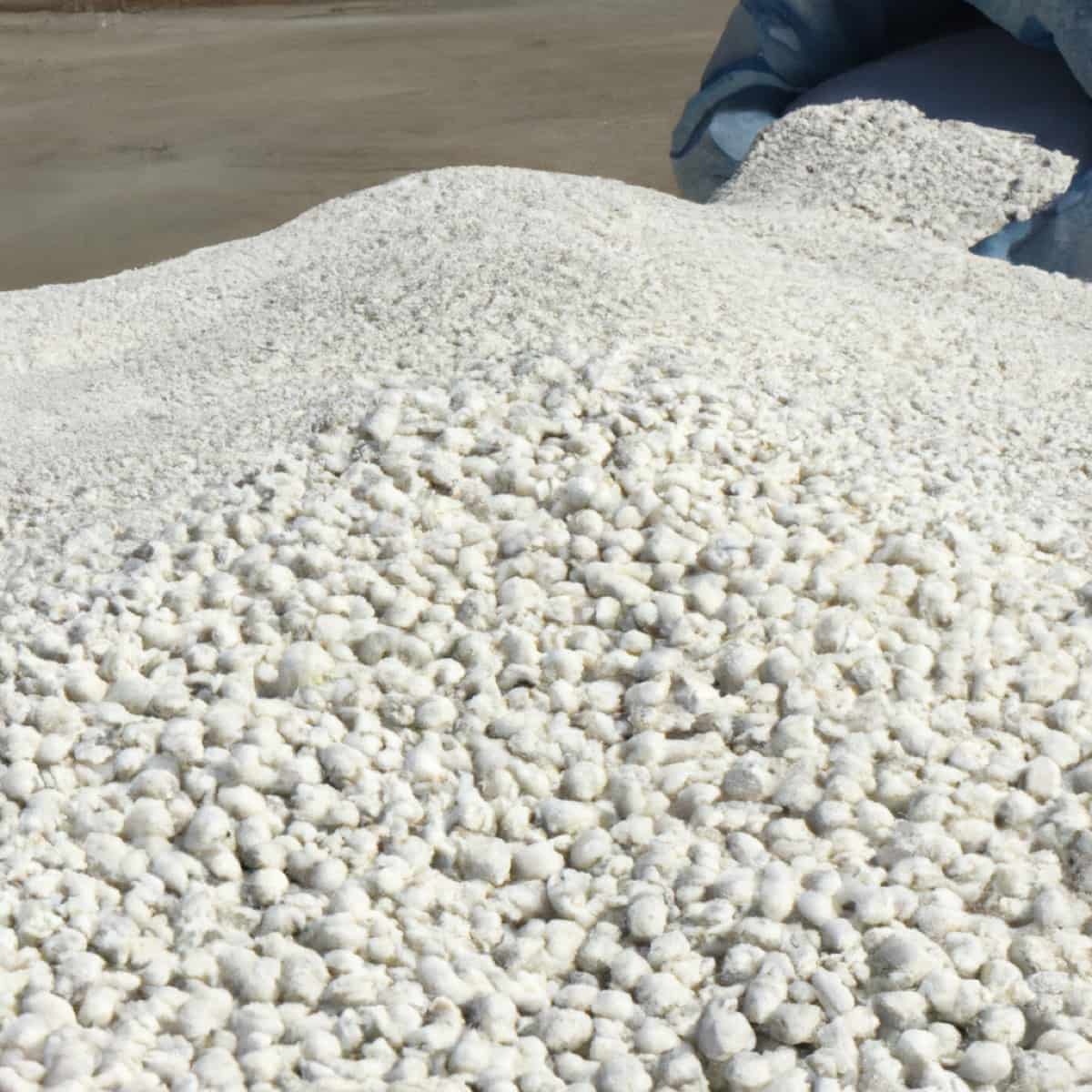
Remember to water the plants well after applying the rock phosphate fertilizer so that it can work its way into the soil and help with crop production. Rock phosphate is often combined with other fertilizers like nitrogen, potassium, and manganese to form custom blends for different crops. Rock phosphate provides the nutrients for vigorous growth in regions with plenty of sunlight and moisture. There are many ways to give rock phosphate to plants, but one standard method is to mix it with water and use a watering can or sprinkler system.
- Add rock phosphate to your fertilizer mix – Rock phosphate is an excellent source of phosphorus that can be used as a fertilizer in agriculture. When added to the soil, it helps to promote plant growth and productivity.
- Use rock phosphate as a soil amendment – Adding rock phosphate to the soil can help to improve crop production by increasing the amount of available phosphorus.
- Use rock phosphate as a top dressing on your lawn – Applying rock phosphate top dressing to your lawn can help improve its overall health and appearance.
- Use rock phosphate as an animal feed supplement – Adding rock phosphate to animal feed can provide them with the necessary phosphorus for healthy growth and development.
- Use rock phosphates in greenhouses – Rock phosphates are also effective at maintaining high humidity levels, which can help increase crop yields.
- Use rocks Phosphate in biogas production – Rock phosphates can be used in biogas production, which helps create renewable energy from organic materials.
Effect of rock phosphate on plants
Rock dust or rock phosphate generally has a slow-release effect on plants. Therefore, it is applied in early spring, a little before flowering. You must ideally apply 10 pounds of rock phosphate for every 100 square feet. In addition, it requires specific soil conditions under which it performs best. For example, it is generally more accessible in acidic soils with a pH below 5.5. Thus, phosphorus is soluble and can be absorbed by plant roots.
In case you missed it: A Guide to Understand Homemade Fertilizers for Your Garden/Farm: Check How this Guide Helps Beginners
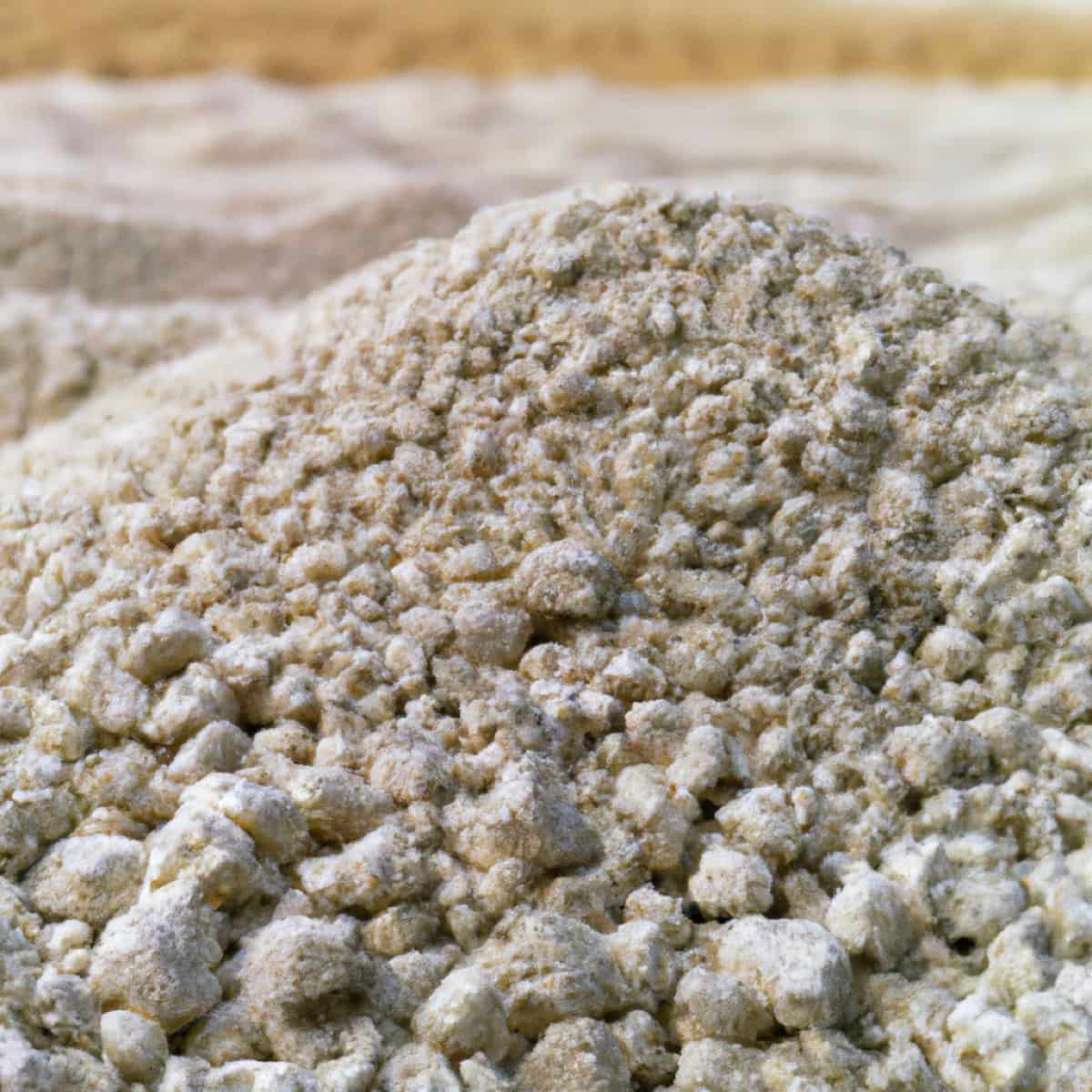
Conclusion
Rock phosphate is the most widely used soluble organic fertilizer to promote healthy plant growth and development. Rock phosphate, also known as phosphate rock or phosphorite, is a type of innocuous sedimentary rock rich in phosphate minerals, including apatite. It is a long-standing organic fertilizer for gardens. It is known to keep plants healthy and encourage new growth. In addition, it helps make other nutrients more accessible to plants by adding phosphorus.
- Types of Pesticides Used in Agriculture: A Beginner’s Guide
- Economical Aquaculture: A Guide to Low-Budget Fish Farming
- 15 Common Planting Errors That Can Doom Your Fruit Trees
- How to Make Houseplants Bushy: Effective Tips and Ideas
- Innovative Strategies for Boosting Coconut Pollination and Yield
- Pollination Strategies for Maximum Pumpkin Yield
- The Complete Guide to Chicken Fattening: Strategies for Maximum Growth
- Natural Solutions for Tulip Problems: 100% Effective Remedies for Leaf and Bulb-Related Issues
- Revolutionizing Citrus Preservation: Towards a Healthier, Greener Future
- Natural Solutions for Peony Leaf and Flower Problems: 100% Effective Remedies
- Maximizing Profits with Avocado Contract Farming in India: A Comprehensive Guide
- Natural Solutions for Hydrangea Problems: 100% Effective Remedies for Leaf and Flowers
- The Ultimate Guide to Choosing the Perfect Foliage Friend: Bringing Life Indoors
- From Sunlight to Sustainability: 15 Ways to Use Solar Technology in Agriculture
- The Ultimate Guide to Dong Tao Chicken: Exploring from History to Raising
- The Eco-Friendly Makeover: How to Convert Your Unused Swimming Pool into a Fish Pond
- Mastering the Art of Delaware Chicken Farming: Essentials for Healthy Backyard Flocks
- 20 Best Homemade Fertilizers for Money Plant: DIY Recipes and Application Methods
- How to Craft a Comprehensive Free-Range Chicken Farming Business Plan
- Brighten Your Flock: Raising Easter Egger Chickens for Beauty and Bounty
- How to Optimize Your Poultry Egg Farm Business Plan with These Strategies
- Subsidy for Spirulina Cultivation: How Indian Government Schemes Encouraging Spirulina Farmers
- Ultimate Guide to Raising Dominique Chickens: Breeding, Feeding, Egg-Production, and Care
- Mastering the Art of Raising Jersey Giant Chickens: Care, Feeding, and More
- Ultimate Guide to Raising Legbar Chickens: Breeding, Farming Practices, Diet, Egg-Production
- How to Raise Welsummer Chickens: A Comprehensive Guide for Beginners
- How to Protect Indoor Plants in Winter: A Comprehensive Guide
- Ultimate Guide to Grow Bag Gardening: Tips, Tricks, and Planting Ideas for Urban Gardeners
- Guide to Lotus Cultivation: How to Propagate, Plant, Grow, Care, Cost, and Profit
- Agriculture Drone Subsidy Scheme: Government Kisan Subsidy, License, and How to Apply Online
- Ultimate Guide to Raising Araucana Chickens: Breed Profile, Farming Economics, Diet, and Care
- Bringing Hydroponics to Classroom: Importance, Benefits of Learning for School Students
- Ultimate Guide to Raising Polish Chickens: Breed Profile, Farming Economics, Diet, and Care
- Ultimate Guide to Raising Australorp Chickens: Profile, Farming Economics, Egg Production, Diet, and Care
- Silkie Chicken Farming: Raising Practices, Varieties, Egg Production, Diet, and Care
- Sussex Chicken Farming: Raising Practices, Varieties, Egg Production, Diet and Care
thanks for info